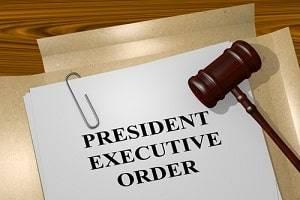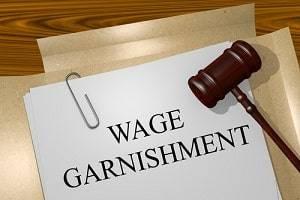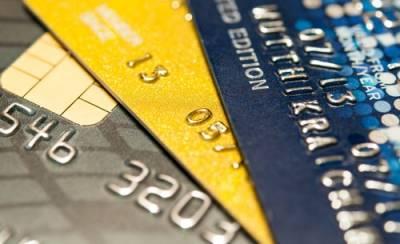 312-704-0771
312-704-0771
Recent Blog Posts
Do the President’s Inaugural Executive Orders Affect Mortgage Lenders?

Joseph R. Biden, Jr. was inaugurated as the 46th President of the United States of America on January 20, 2021. With barely enough time to celebrate this major achievement, he rushed to work and signed off on several executive orders and actions on his first day in office. One such executive order included extensions on the moratorium for mortgage foreclosures and rental evictions. Here are the details on this latest executive order, particularly helpful if you are a mortgage lender or servicer attempting to collect on the homeowners’ debts.
Extensions on Mortgage Foreclosure Moratoriums and Forbearance
President Biden issued several executive orders dealing with a wide variety of topics, including climate change, student loan debt, COVID-19 relief and regulations, and immigration. Of particular interest to mortgage lenders is the moratorium extension; request for even further extensions in the future; and updates to the newest forbearance guidelines. With regards to the moratorium, the new order mandates that:
Which Earnings Can Be Garnished When Collecting Debt in Illinois?

When it comes to wage garnishment, if you are tasked with collecting debt on behalf of a bank, credit union, or finance company, seizing funds from a debtor’s paycheck through garnishment or wage deductions is often a last-resort strategy for you to use in recouping your organization’s funds. With that being said, if you are faced with the need to garnish a debtor’s paycheck or other earnings, you should know just what types of funds or income can be garnished in Illinois.
What Can Be Garnished
In general, according to Title III of the Consumer Credit Protection Act (CCPA), a person’s earnings can be garnished to collect on debts. Per the CCPA, earnings is defined as:
-
Compensation paid for personal services
How to Manage Preforeclosure in the Age of COVID-19

While the mortgage, rent, and income protections provided for in last spring’s original Coronavirus Aid, Relief, and Economic Security (CARES) Act have long since been exhausted, many states, including Illinois, have continued to offer their own executive orders and legislation to assist residents during this unprecedented time. In addition, many mortgage companies have developed their own programs for homeowners to help them avoid foreclosure, at least for the time being. However, that is not to say if you are looking to eventually collect on the debts owed from these properties that might be in preforeclosure, you should not be prepared to take action. Foreclosure debt collection will be inevitable post-pandemic, despite the latest COVID relief package being signed into law. In that sense, you, as a mortgage lender or servicer who deals with foreclosures, must remain focused on your job, collecting and documenting everything necessary to make the preforeclosure and foreclosure processes go smoothly whenever the time comes.
How Do Credit Unions Deal with Bankruptcy Differently from Banks?
Bankruptcy is a complex process for any financial institution, but for credit unions, in particular, there are some special issues to take into consideration when proceeding with your debt collection efforts. Unlike many banks, auto lenders, truck lenders, equipment lenders, or other financial institutions, credit unions face additional challenges in their recovery efforts due to the nature of their organizations. Here are some tips for how to manage member bankruptcies or other debt collection needs if you work for a credit union.
How Will the Pandemic Affect Consumer Habits on Black Friday?

It is common during the holidays, especially during Black Friday, for consumers to purchase more than they can actually afford; in fact, some of these shoppers are already struggling financially but believe the holiday gives them a great opportunity to max out their credit cards and take out loans for exorbitant holiday gift-giving before they eventually file for bankruptcy. There are ways to contest such holiday bankruptcy fraud, but this year might not be the same due to the pandemic.
How COVID-19 Will Change Black Friday
Numerous retailers are struggling financially as a result of the pandemic due in large part to early stay-at-home orders for all non-essential workers and businesses as well as the economic recession itself. Fortunately, those companies with strong e-commerce skills have been able to offer their products online. The pandemic will change Black Friday in this way—it will further accelerate the trend of people avoiding the in-store rush and simply shopping online instead.
What Are Your Options if a Debtor Hides Collateral from Repossession?

If you work for a bank, credit union, auto lender, truck lender, equipment lender, or other finance company, you are familiar with the way some debtors might refuse to pay their monthly payment for their debt secured by collateral. In those cases, repossession of the collateral is necessary, but sometimes the debtor will hide the car, boat, or other collateral to prevent repossession. If that is the case for you and your organization, consider the actions you can take to recover the property, including legal actions.
When Repossession Fails
Repossession companies are legally permitted to do many things in their pursuit of reclaiming property for creditors, but one thing they cannot do is “breach the peace,” which means they cannot commit crimes like breaking into a property or intimidating creditors in order to retrieve the collateral. This is one of the reasons creditors should be very mindful and discerning when choosing a repossession partner.
Should You Institute a More Expansive COVID-19 Forbearance Policy?
 With many reports claiming that the COVID-19 pandemic could continue well into 2021—and some reports even suggesting that it could last into 2022—the economic impact is likely to remain substantial and adverse. Illinois alone approximately has more than a 20 percent unemployment rate since the start of the pandemic. All this job loss and financial strife means more foreclosures, mortgage loan modifications, workouts, and other adjustments to mortgages are bound to occur, at least eventually. With echoes of the Coronavirus Aid, Relief, and Economic Security (CARES) Act signed into law this past March still being felt today, mortgage lenders and mortgage servicers might be considering their responsibilities at this time in offering new—or extending prior—COVID-19 forbearance plans for their borrowers. Here is an overview for your reference.
With many reports claiming that the COVID-19 pandemic could continue well into 2021—and some reports even suggesting that it could last into 2022—the economic impact is likely to remain substantial and adverse. Illinois alone approximately has more than a 20 percent unemployment rate since the start of the pandemic. All this job loss and financial strife means more foreclosures, mortgage loan modifications, workouts, and other adjustments to mortgages are bound to occur, at least eventually. With echoes of the Coronavirus Aid, Relief, and Economic Security (CARES) Act signed into law this past March still being felt today, mortgage lenders and mortgage servicers might be considering their responsibilities at this time in offering new—or extending prior—COVID-19 forbearance plans for their borrowers. Here is an overview for your reference.
What You Should Know About the Rise of Cash-Advance Apps
 As the economic repercussions of the COVID-19 pandemic persist across both Illinois and the entire nation, consumers have been looking for new ways to fund their daily expenses from paycheck-to-paycheck. Enter the cash-advance app, clever applications on their smartphones that link to their bank accounts and offer small cash advances each pay period provided the user meets certain requirements. Among them are such apps as Earnin, Dave, Branch, and Brigit, with countless others cropping up every day on your smartphone’s digital marketplaces. With these apps becoming more and more popular, many financiers and finance companies funding such major joint “fintech” ventures might be wondering how they can ensure appropriate debt collection. Overall, though, that might be the least of their worries at this point. Here are a few reasons why.
As the economic repercussions of the COVID-19 pandemic persist across both Illinois and the entire nation, consumers have been looking for new ways to fund their daily expenses from paycheck-to-paycheck. Enter the cash-advance app, clever applications on their smartphones that link to their bank accounts and offer small cash advances each pay period provided the user meets certain requirements. Among them are such apps as Earnin, Dave, Branch, and Brigit, with countless others cropping up every day on your smartphone’s digital marketplaces. With these apps becoming more and more popular, many financiers and finance companies funding such major joint “fintech” ventures might be wondering how they can ensure appropriate debt collection. Overall, though, that might be the least of their worries at this point. Here are a few reasons why.
How Credit Card Companies and Consumers Have Reacted to the COVID-19 Pandemic
 According to the August report from the U.S. Federal Reserve, the amount of unpaid credit card debt in the U.S. has been dropping since the start of the COVID-19 pandemic. Outstanding consumer credit card debt in July was reported as $994.7 billion, which is down from $996.8 billion in May and $1.078 trillion in Quarter 1 of 2020. Declining credit card debt is a predictable response to a downturn in the economy. In fact, both consumers and credit card companies have changed their behavior because of the pandemic
According to the August report from the U.S. Federal Reserve, the amount of unpaid credit card debt in the U.S. has been dropping since the start of the COVID-19 pandemic. Outstanding consumer credit card debt in July was reported as $994.7 billion, which is down from $996.8 billion in May and $1.078 trillion in Quarter 1 of 2020. Declining credit card debt is a predictable response to a downturn in the economy. In fact, both consumers and credit card companies have changed their behavior because of the pandemic
Consumers’ Approach to Debt Has Changed
Millions of Americans lost their jobs, were put on leave, or had their hours reduced in response to the COVID-19 outbreak. When consumers are uncertain about their job income, many will become more risk-averse about taking on credit that they may not be able to repay. The pandemic affected the activities of cardholders in several ways:
Why Equipment Lenders Try to Avoid Repossession from Clients

Leasing is a useful way for businesses to acquire equipment if they do not have the money or see the need to purchase the equipment in full. Equipment vendors and leasing companies charge a monthly fee to lend the equipment to the business, sometimes with the option for the business to purchase the equipment at the end of the lease. As with any lease, the lessor must weigh the likelihood that the lessee will be on time with the payments for the duration of the lease. Unfortunately, a business can be unpredictable, and the client may fall behind on their payments despite good credit history. The terms of the lease may give you, as the lessor, the right to repossess the equipment, but repossession is often not the best option.
Problems with Repossession
There are several reasons why you may want to avoid repossessing equipment if a client is not paying their lease:







